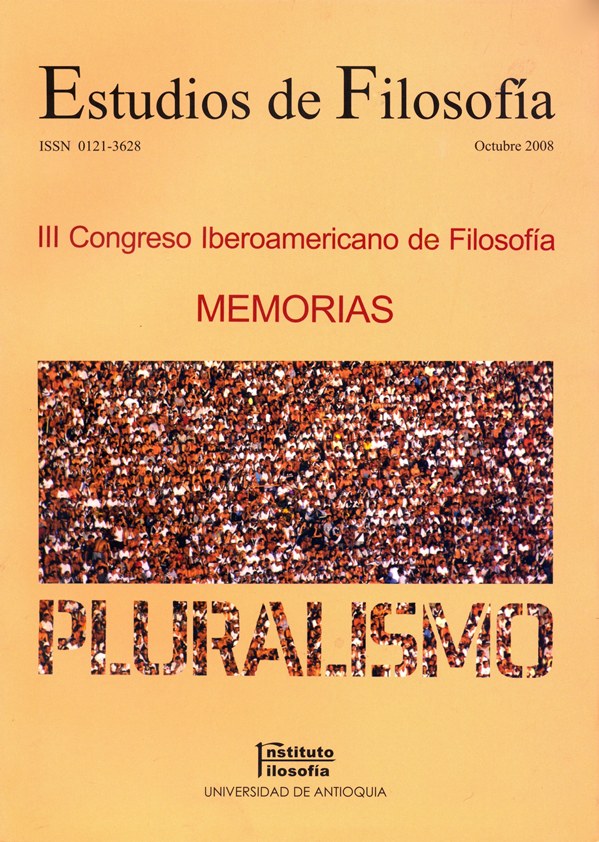Three Parables on Religious Violence, Tolerance and Pluralism
DOI:
https://doi.org/10.17533/udea.ef.12864Keywords:
religiuos violence, tolerance, pluralism, respectAbstract
Timor Domini initium sapientiae (Prov. 17). Less optimistic about the beneficial effects of fear, a number of illustrious philosophers and thinkers - from Epicurus to Hume, Feuerbach, and Freud - have endeavored to free men from this atavistic dread of divinity. And it must be recognized that this therapeutic work seems to have achieved its goal. On the other hand, the fear of those who continue to appeal to the gods to legitimize all kinds of violent practices has not diminished. There are the murderers who spread terror by appealing to a divine mandate, or those who respond to these threats with crusades of undeniable religious flavor. The upsurge in violence associated with religious beliefs or convictions would seem to justify the position of those who prefer to assimilate religion with dynamite, rather than with the opium of the peoples.
Downloads
Downloads
Published
How to Cite
Issue
Section
Categories
License
Copyright (c) 2008 Ángelo Papacchini

This work is licensed under a Creative Commons Attribution-NonCommercial-ShareAlike 4.0 International License.
Authors who publish with this journal agree to the following terms:
1. The Author retains copyright in the Work, where the term "Work" shall include all digital objects that may result in subsequent electronic publication or distribution.
2. Upon acceptance of the Work, the author shall grant to the Publisher the right of first publication of the Work.
3. The Author shall grant to the Publisher a nonexclusive perpetual right and license to publish, archive, and make accessible the Work in whole or in part in all forms of media now or hereafter known under a Creative Commons Attribution-NoCommercia-ShareAlike (CC BY-NC-SA 4.0), or its equivalent, which, for the avoidance of doubt, allows others to copy, distribute, and transmit the Work under the following conditions: (a) Attribution: Other users must attribute the Work in the manner specified by the author as indicated on the journal Web site;(b) Noncommercial: Other users (including Publisher) may not use this Work for commercial purposes;
4. The Author is able to enter into separate, additional contractual arrangements for the nonexclusive distribution of the journal's published version of the Work (e.g., post it to an institutional repository or publish it in a book), as long as there is provided in the document an acknowledgement of its initial publication in this journal;
5. Authors are permitted, and Estudios de Filosofía promotes, to post online the preprint manuscript of the Work in institutional repositories or on their Websites prior to and during the submission process, as it can lead to productive exchanges, as well as earlier and greater citation of published work (see The Effect of Open Access). Any such posting made before acceptance and publication of the Work is expected be updated upon publication to include a reference to the Estudios de Filosofía's assigned URL to the Article and its final published version in Estudios de Filosofía.















